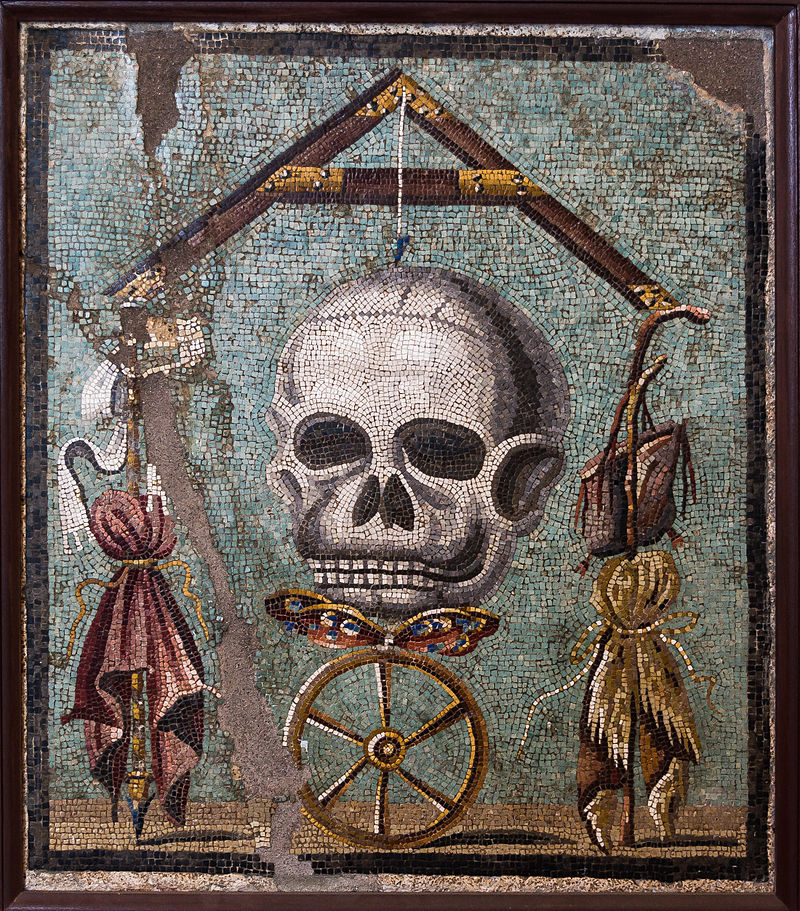These are fragments which may or may not be a whole.
P. Oxy. xv. 1921, no. 1795, p. 113 [Anonymous = LCL Anonymous Hexamers 125]
“Don’t try to do injustice nor to return injustice done
Avoid murders and avoid battles, don’t deign to argue—
Then you will hurt only a short time and you won’t think about it later.
Play a song for me.
You saw the spring, winter, the summer. These are eternal.
Even the sun has set and night is taking what’s owed her.
Don’t try to find where the sun comes from or where the water’s home,
But where you can buy some fragrance and and wreaths.
Play a song for me.
I used to want to have three free-flowing honey springs,
five milk rivers, ten of wine, twelve of perfume
two from clear fountains and three from snow.
I used to want a boy and a girl near a fountain.
Play a song for me.
The Lydian pipe and the Lydian games of the lyre work for me.
The Phrygian reed and the leather-topped drum work for me too.
As long as I live I love to sing these things and when I die
Put a flute above my head and a lyre near my feet.
Play a song for me.
Who has ever discovered how to measure wealth and poverty?
Or who again has ever found how much gold human beings need?
Today, still, whoever has money always wants more of it
And the wretch is tortured like the poor even though he’s rich.
Play a song for me.
If you ever see a corpse or walk by quiet graves,
That’s when you look into the mirror we all share: the dead expected this.
Time is on loan and life’s lender is a prick.
Whenever he demands repayment, you must pay the bill by grieving.
Play a song for me.
It was the king Xerxes who said he shared everything with god,
But he crossed the Lemnian water in defeat with a single rudder.
Midas was rich; Kinyras was triply blest,
But who has ever gone to Hades with more than a single coin?
Play a song for me.,.”
μηδ᾿ ἀδικεῖν ζήτει, μηδ᾿ ἂν ἀδι[κῆι πρ]οσερίσηις·
φεῦγε φόνους καὶ φεῦγε μάχας, φ[εῖ]σαι διαφρονε[ῖ]ν,
εἰς δ᾿ ὀλίγον πονέσεις, καὶ δεύτερον οὐ μεταμέληι.
αὔ[λει μοι
Ἶδες ἔαρ, χειμῶνα, θέρος· ταῦτ᾿ ἐστι διόλου·
ἥλιος αὐτὸς [ἔδυ], καὶ νὺξ τὰ τεταγμέν᾿ ἀπέχει·
μὴ κοπία ζητεῖν πόθεν ἥλιος ἢ πόθε[ν] ὕδωρ,
ἀλλὰ π[ό]θεν τ[ὸ] μύρον καὶ τοὺς στεφάνου[ς] ἀγοράσηις.
αὔλει μο[ι.
Κρήνας αὐτορύ[το]υς μέλ[ιτ]ος τρεῖς ἤθελον ἔχειν,
πέντε γαλακτορύτους, οἴνου δέκα, δ[ώδε]κα μύρου,
καὶ δύο πηγαίων ὑδάτων, καὶ τρεῖς χιονέων·
παῖδα κατὰ κρήνην καὶ παρθένον ἤθελον ἔχειν.
αὔλει μο[ι.
Λύδιος αὐλὸς ἐμοὶ τὰ δὲ Λύδια παίγματα λύρας
κα[ὶ] Φρύγ[ιο]ς κάλαμος τὰ δὲ ταύρεα τύμπανα πονεῖ·
ταῦτα ζῶν ἆισαί τ᾿ ἔραμαι καὶ ὅταν ἀποθάνω
αὐλὸν ὑπὲρ κεφαλῆς θέτε μοι παρὰ ποσ(σ)ὶ δὲ λύρη[ν.
αὔλει μοι.
Μέτρα τί[ς] ἀν πλούτου, τίς ἀνεύρατο μέτρα πενίας
ἢ τίς ἐν ἀνθρώποις χρυσοῦ πάλιν εὕρατο μέτρον;
νῦν γὰρ ὁ χρήματ᾿ ἔχων ἔτι πλε[ί]ονα χρήματα θέλει,
πλούσιος ὢν δ᾿ ὁ τάλας βασανίζεται ὥσπερ ὁ πένης.
αὔλ[ει μοι.
Νεκρὸν ἐάν ποτ᾿ ἴδηις καὶ μνήματα κωφὰ παράγηις
κοινὸν ἔσοπτρον ὁρᾶι(ς)· ὁ θανὼν οὕτως προσεδόκα.
ὁ χρό[ν]ος ἐστὶ δάνος, τὸ ζῆν πικρός ἐσθ᾿ ὁ δανίσας,
κἂν τότ᾿ ἀπαιτῆσαί σε θέληι, κλαίων [ἀ]ποδιδοῖς.
αὔλει μοι.
Ξέρξης ἦν βασιλε[ὺ]ς ὁ λέγων Διὶ πάντα μερίσαι,
ὃς δυσ(ὶ) πηδαλ[ί]ο[ι]ς μόνος ἔσχισε Λήμνιον ὕδωρ.
ὄλβι(ο)ς ἦν ὁ Μίδας, τρὶς δ᾿ ὄλβιος ἦν ὁ [Κ]ινύρ[α]ς,
ἀλλὰ τίς εἰς Ἀίδα ὀβολοῦ πλέον ἤλυθεν ἔχων;
αὔλει μοι.

Then, there’s always this:
